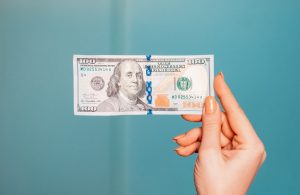Forex, or foreign exchange, is the largest financial market in the world, with an estimated $6.6 trillion traded every day. While it may seem like a complex industry, the fundamental concept of forex is simple: make money by buying and selling different currencies. In this article, we will explore how forex makes money.
The Basic Concept
Forex trading is based on the basic principle of buying one currency while selling another. This is done with the hope of profiting from the difference in exchange rates between the two currencies. For instance, if you believe that the value of the US dollar will rise against the Japanese yen, you can buy dollars and sell yen. If the value of the dollar does, in fact, rise against the yen, you will make a profit. If the value of the dollar falls, you will make a loss.
The Role of Brokers
Forex brokers act as intermediaries between traders and the forex market. They provide traders with access to the market through trading platforms and offer a range of trading tools and services. Brokers earn their money by charging a spread, which is the difference between the buying and selling price of a currency pair. The spread is usually measured in pips, which is the smallest unit of price movement in the forex market.
For instance, if a broker charges a spread of two pips on the EUR/USD currency pair, and the current bid/ask price is 1.1000/1.1002, the broker will buy the currency at 1.1002 and sell it at 1.1000, earning a profit of two pips.
Leverage
One of the unique features of the forex market is the ability to trade with leverage. Leverage allows traders to control large positions with a relatively small amount of capital. For instance, a broker may offer a leverage of 1:100, which means that for every $1 of capital, a trader can control a position worth $100.
Leverage can amplify both profits and losses. If a trader makes a profitable trade, the profits will be magnified, allowing them to make more money with less capital. On the other hand, if a trader makes a losing trade, the losses will also be magnified, potentially wiping out their entire account.
Commissions
Some brokers charge commissions on forex trades. This is different from the spread, which is the difference between the buying and selling price of a currency pair. Commissions are usually calculated as a percentage of the trade value.
For instance, if a broker charges a commission of 0.1% on a $10,000 trade, the commission will be $10. Commissions can add up quickly, especially for traders who make frequent trades.
Risk Management
Risk management is a crucial aspect of forex trading. Traders must be able to manage their risk to avoid losing their entire account. One way to manage risk is through the use of stop-loss orders.
A stop-loss order is an order to close a trade at a predetermined price. For instance, if a trader buys a currency pair at 1.1000 and sets a stop-loss order at 1.0950, the trade will automatically close if the price falls to 1.0950, limiting the trader’s losses.
Final Thoughts
Forex trading can be a lucrative way to make money, but it is not without its risks. Traders must be able to manage their risk, understand the market, and have a sound trading strategy. Brokers earn their money through spreads, commissions, and other fees. With the right mindset and approach, forex trading can be a profitable venture.





